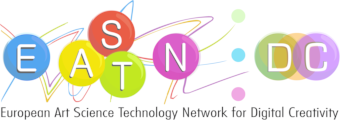Summary
This paper provides a critical overview of AI art within the context of interrelated disciplines and enterprises engaged in the development, application or study of AI.
Abstract
The expanding research and implementation of artificial intelligence (AI) and the increasing accessibility of various machine learning (ML) technologies since 2009 have enabled artists to start working with the AI systems. Their production contributes in different ways to the world of AI, and shares both its advantages and shortcomings. This paper sketches a critical map of AI art within the context of interrelated disciplines and enterprises engaged in the development, application or study of AI.
We provide an overview of the divergent methodological, exploratory and expressive approaches of AI artists, and discuss their effectiveness in addressing the phenomenological, epistemic, sociopolitical and other relevant aspects of AI. Our scope includes experimental AI art, AI-derived mainstream contemporary art (MCA), AI-related art produced before the current AI spring, as well as the artistic overtones of AI science which expose AI art to a critical consideration within a broader creative context. We also look at the strategies that AI artists employ to enter or disrupt the MCA market requirements for scarcity, commercial viability and ownership. By examining the artists’ creative perspectives towards the constitution of social reality through globalized AI-driven infrastructures of entertainment, commerce, communication and surveillance, we identify a number of conceptual, discursive and ethical issues that affect the poetic outcomes and cultural status of AI art.
With regards to the existing literature on AI art, our study focuses on establishing a constructive critical outlook on the concepts, methodologies, cultural contexts, and social impacts of AI art. It shows that AI art simultaneously tackles and reflects the ambiguities which mystify the important features of human cognition and creativity, influence AI science, drive the MCA market, and shape the representation of AI in the media and in popular culture. Facing the capabilities and transformative potentials of AI, artists need to engage in a sharper critique of their motivations and goals, in a deeper creative investigation of their tools, and in a more nuanced ethical scrutiny of their professional strategies.
A better understanding of existential conditions, poetic/expressive range and futures of AI art practices is relevant to both artistic and scientific research in AI, and may contribute to its more appropriate handling by the cultural sector. In a broader prospect, the frameworks of contemporary art, science-technology and education can facilitate important incentives for the meaningful exploration of AI, but they need to be thoroughly reconsidered and reconceptualized in order to be mutable and adaptable for absorbing and effectuating the knowledge that emerges from various relevant disciplines. This will help all creative actors to make meaningful contributions which could define more robust concepts of intelligence, map its perspectives, and inform our directives for further development and responsible application of AI.
Main References
Cetinić, Eva, and James She. 2021. “Understanding and Creating Art with Ai: Review and Outlook.” Preprint (19 February). https://arxiv.org/pdf/2102.09109.
Fuchs, Natalia, Peter Kirn, Chris Salter, Emilio Vavarella, and Moises Horta Valenzuela. 2020. “AI Art Manifesto.” Futurological Congress x Transart. https://www.transart.it/wp-content/uploads/2020/09/AI-Art-Manifesto.pdf.
Hertzmann, Aaron. 2020. “Computers Do Not Make Art, People Do.” Communications of the ACM, 63, 5: 45–48.
Kearns, Michael, and Aaron Roth. 2019. The Ethical Algorithm: The Science of Socially Aware Algorithm Design. Oxford: Oxford University Press.
Marcus, Gary F., and Ernest Davis. 2019. Rebooting AI: Building Artificial Intelligence We Can Trust. New York: Pantheon Books.
Miller, Arthur I. 2019. The Artist in the Machine: The World of AI-Powered Creativity, 289-295. Cambridge: The MIT Press.
Mitchell, Melanie. 2019. Artificial Intelligence: A Guide for Thinking Humans. Kindle edition. New York: Farrar, Straus and Giroux.
Żylińska, Joanna. 2020. AI Art: Machine Visions and Warped Dreams. London: Open Humanities Press.
Back
“Reflections: Bridges between Technology and Culture, Physical and Virtual”
is supported by:






